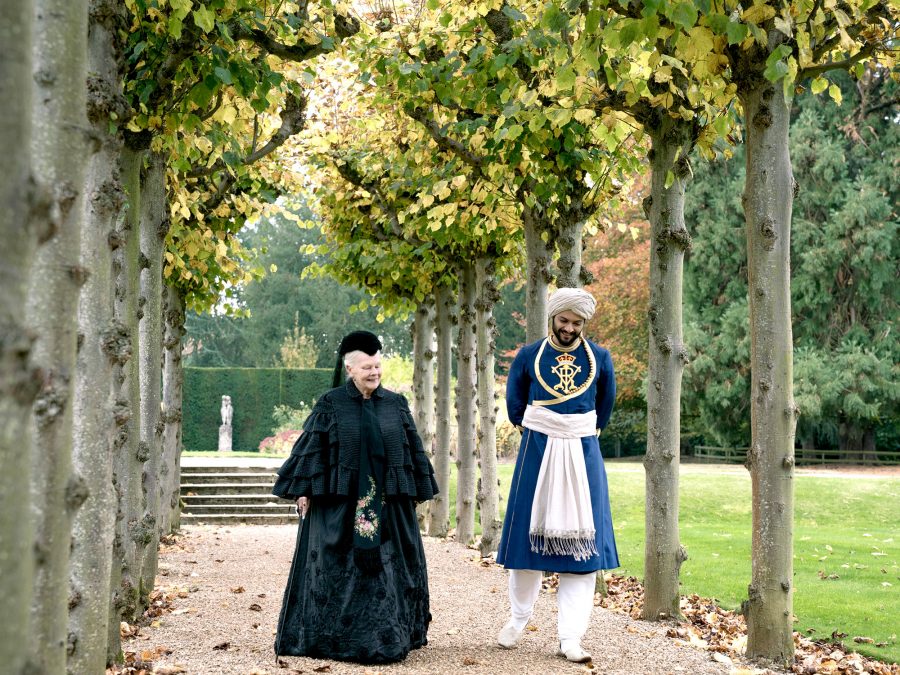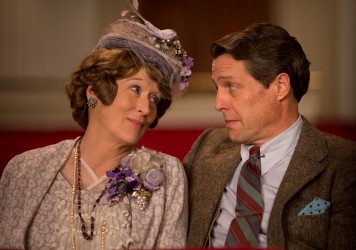Judi Dench reprises her role as Queen Victoria in this touching study of later-life depression.
During the last 15 years of her life Queen Victoria found companionship with an Indian servant named Abdul Karim. He caught her eye at the Golden Jubilee celebrations of 1887, cutting an appealing figure in court and making her all a-quiver when he kissed her feet in admiration.
The Queen nicknamed Abdul her Munshi (a Persian term for secretary), and as their relationship developed, the pair spent many hours together writing in journals and learning one another’s native tongue. His photo hung just below that of another faithful servant, John Brown, and though he was held in high esteem by the Queen, lavished with various awards and honours, her household continually tried to discredit him.
Their fascinating and tender relationship is captured with charm and humour in this lovely new feature. Director Stephen Frears and screenwriter Lee Hall blend the bureaucratic hysteria of political sitcom The Thick of It with the light-heartedness and sentiment of films such as Philomena or the Mumbai-set rom-com, The Lunchbox.

Judi Dench reprises her role as Queen Victoria (one she last played in Mrs Brown some 20 years ago) and Ali Fazal’s eyes twinkle with the milk of human kindness as her loyal confidante. The filmmakers note that, even though this is based on a true story and adapted from a book written by Shrabani Basu, they do take some artistic license with the telling.
The film doesn’t sugarcoat the physical condition of the Queen in her later years – the viewer witnesses her squishy, still snoring body being rolled out of bed by her staff ahead of a strict regime of responsibilities and official meetings. In the early stages of the film, Dench plays her as a commanding woman on autopilot, still grieving at the death of her husband and the relationship with John Brown still weighing heavily on her mind. She’s almost grey in appearance. Yet the Queen’s friendship with the Munshi flourishes and Dench builds a mischievous, sparkly warmth and scathing wit into her Victoria.
Surrounded by a phalanx of arrogant offspring and toadying sta ers, the Queen’s unhappiness is eased by the presence of her Munshi. Eddie Izzard plays Bertie, Prince of Wales, as a spoiled, jealous child who is hungry for power. The household’s opulent feasts, ingrained snobbery and openly racist attitudes are cruel, and are paraded as such. No one gets off lightly, as even Victoria’s more frilly behaviour is called out during a singing session with Giacomo Puccini (Simon Callow) and Abdul’s ambition and love for British culture takes precedence over his Indian heritage.
The loneliness of later life and the depression it brings with it, as explored recently in Bill Condon’s Mr Holmes, is touched upon but there is an air of pomposity when Victoria confides to Abdul, “We are all prisoners.” It’s fair to examine how Victoria’s standing in life left her feeling isolated but it’s a naïve leap too far to compare the life of impoverished men forced to leave their homeland and work for the Empress of India to her privileged lifestyle.
For the most part, though, Frears and co poke fun at the monarchy and do a decent job at presenting the complex relationship between India and England.
Published 12 Sep 2017
Sounds fascinating but could be condescending.
How Queen Victoria got her groove back!
Laughs and melancholy aplenty but the relationship between Victoria and Abdul is over romanticised.

Stephen Frears parlays the fascinating story of this warbling songbird into a cosy, featherlight comedy.

Stripping away the dazzling veneer of sun-dappled privilege, Stephen Frears reveals a world of betrayal, desperation, bitterness and regret.